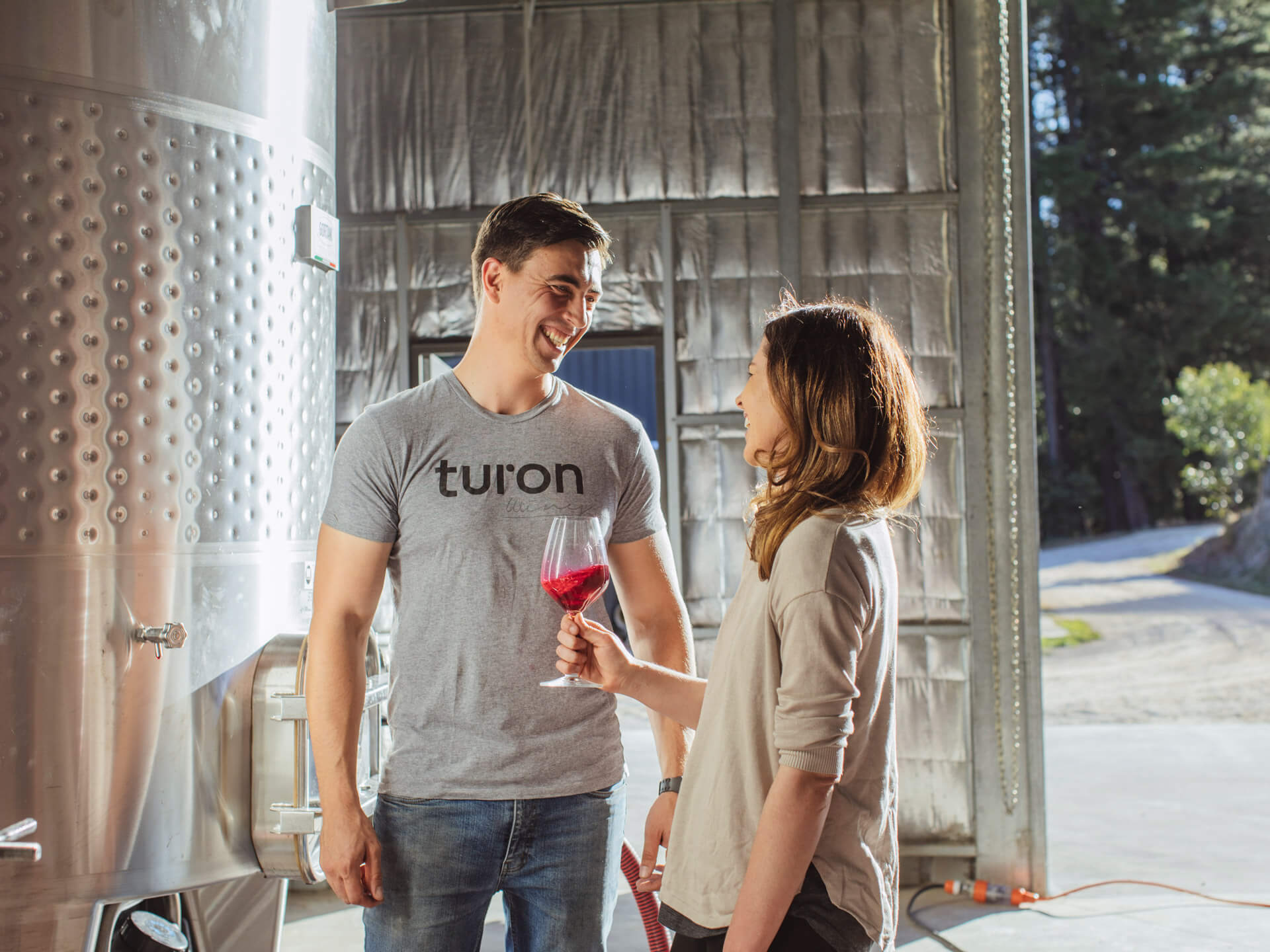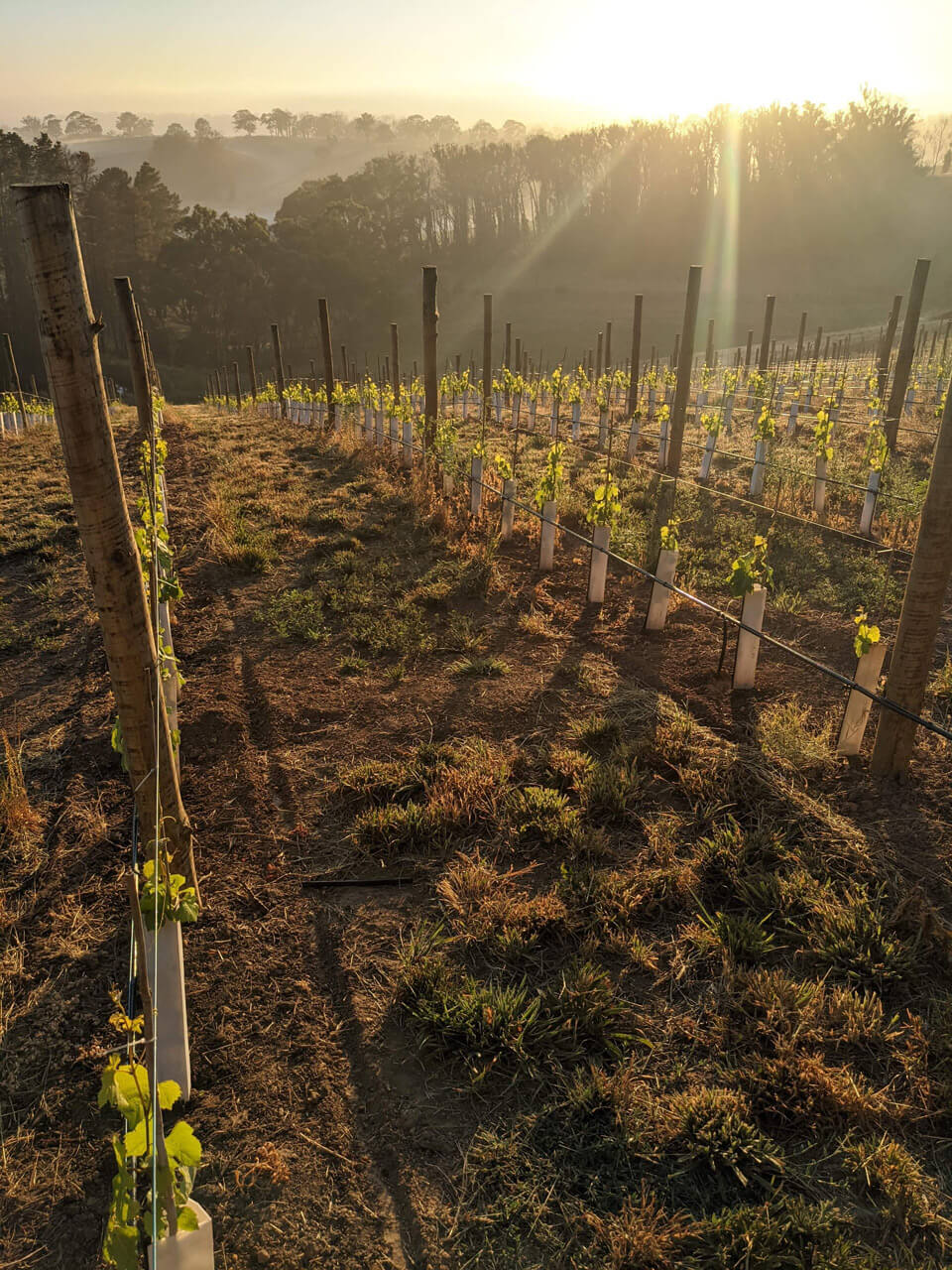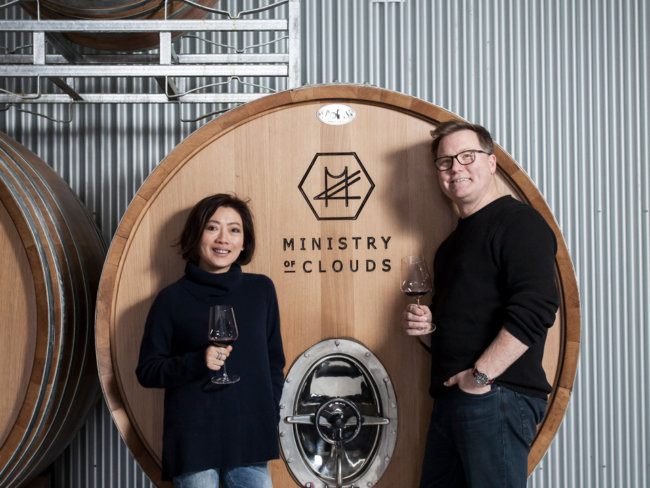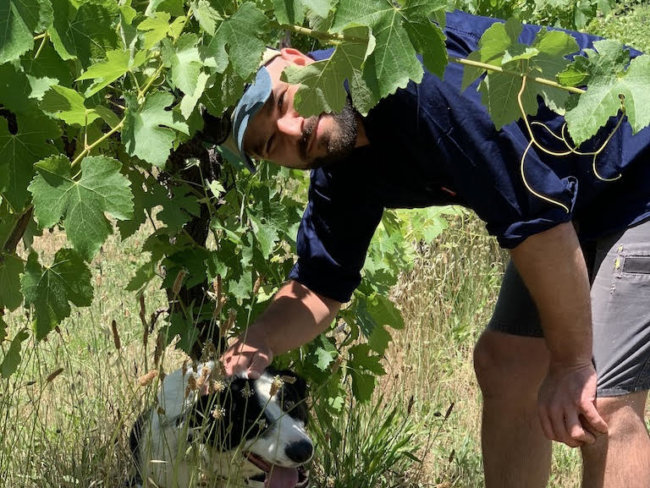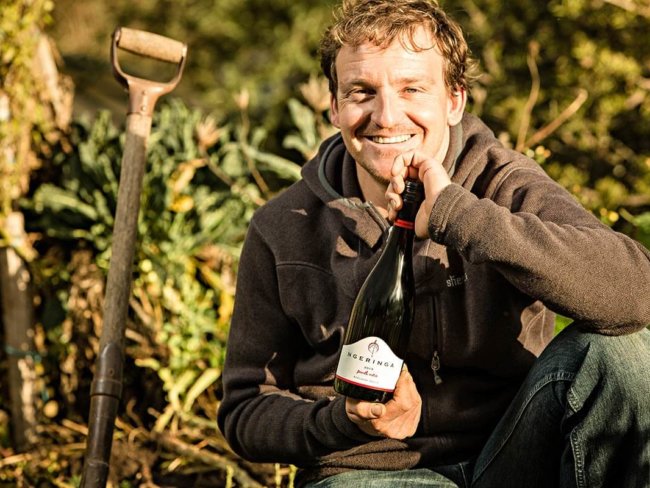Turon White has not strayed far from his beloved Adelaide Hills, excepting experience-gathering vintages interstate and abroad, with the rich diversity of the region and the pristine fruit quality ideal for the elegant yet intense wines he makes under the Turon Wines label – which he co-owns with his wife, Alex. With chardonnay, pinot noir and gamay to the fore, White takes a minimal-intervention approach, but his wines are in a classic mould, expressing variety, site and season with bell-clear clarity.
“The Adelaide Hills is a pristine gem in the South Australian landscape,” says White. “Ultimately, it is the quality of the fruit that drew us here, and geographically it is one of the most diverse wine regions in Australia, offering a large number of subregions and pockets with a potential to grow a great many varieties.”
White studied winemaking at The University of Adelaide, with vintages at Adelaide Hills biodynamic icon Ngeringa in 2008 and ’09, followed by a vintage at Pfeiffer Wines in Victoria’s Rutherglen in his graduation year. Aside from vintages in Oregon and Hungary, home vintages have since been spent in the Hills, firstly at Petaluma, then at The Lane Vineyard from ’14, where he was made head winemaker in ’19 – a position he held until resigning in late ’23 to focus all his attention on Turon Wines.
While still at Petaluma, in 2013, White made his first Turon wine – a pinot noir – which launched the label in ’15. Then he was working in a shared space with two other makers, but in ’17, he and his wife, Alex, built a winery on their home property. “We have our own custom-built small-batch winery in Lenswood,” says White.
“After several years studying sight, soil, altitude, variety and clone we planted a high-density pinot noir vineyard with 5,556 vines per hectare, essentially asking less of each vine so they can put more energy into growing good fruit. Our property’s altitude ensures we have cool nights, perfect for creating fresh vibrant wines, and beautiful daytime sunlight, creating incredibly rich and expressive fruit.”
That vineyard, which is farmed by organic and biodynamic principles has just started to yield results. “We have taken the first fruit off this super-low-yielding block,” says White. “Tiny bunches with intensely perfumed fruit with thick skins show an impressive future for the vineyard and wine. We would love to continue to grow our vineyard plantings. Planting at high density is both costly and labour intensive but the results speak for themselves, and we are only interested in making the best wines possible.”
In addition to their own vineyard, White notes that he manages other sites they source from, as well as working in conjunction with a neighbouring Lenswood grower that supplies them pinot noir fruit. “We have been working to bring the most out of the sites,” he says. “Using organic processes to reduce the requirement for strong sprays and bringing the vineyards back to a more natural balance where there is a self-sustaining ecosystem. We have also been working hard to reduce the yields and therefore increase the quality and flavour concentration of the fruit.”
White notes that they have had their vineyard certified sustainable and winery certified organic. “We want to make the wine production as much of a sustainable closed loop as is possible. We consider all our actions to do good. …Much thought has been put into sustainable practices in our vineyard and winery development. …Our vineyard management practices promote soil carbon storage, micro-flora growth and regenerative agriculture. We also take a sustainable approach in our winery and winemaking practices by ensuring we choose practices that reduce our carbon emissions and waste.”
The key varieties for the Turon wines are unsurprisingly the region’s stars, chardonnay, pinot noir and gamay, but with gamay becoming an increasing focus. “We have been leaning into gamay in a big way,” White says. “This is a new variety to the region with a massive potential to create some of the most fascinating, fun and intriguing wines I have ever seen.”
White makes his wines in a lo-fi manner, respecting the care with which they’re grown, but his style is one of purity and refinement. “Our vision is to showcase the varieties and wine styles that best suit our corner of Australia, using minimal intervention winemaking to showcase the vineyard. We aim to create elegant wines with intense flavour, wines that express the natural characters of our terroir and the grape variety.”
That process means that White adds nothing to his wines – no cultivated yeasts, no acid, no enzymes – except for sulphur at bottling, and then the merest amount required to protect the wine in bottle. And while that is a philosophy in itself, he is wary of being dogmatic in his approach.
“The first rule of winemaking is there are no rules. We work with the fruit in front of us; every season gives you a different set of characters to work with. It’s the fun part of winemaking to work with the fruit the season provides to bring out what makes that year special. Our minimal intervention approach to winemaking means having the confidence to stand back and let the wine be itself, but the knowledge to step in and guide the wine in the right direction when necessary.”
The winery also has a purpose beyond the Turon wines, operating as The Hills Handcrafted Collective, a contract winemaking service and wine consultancy business. It is a natural extension for White.
“The Adelaide Hills has a strong community of young winemakers openly sharing their experiences with each other all in the pursuit of making the best wine possible and pushing the boundaries of convention. It is an environment with a lot of energy that encourages experimentation and discovery.”
White describes putting their life savings into building a winery and planting a vineyard as “the most terrifying and rewarding thing we have ever done”. But, as he says, “if you’re going to do it, do it properly. Ultimately making world class wines and having total control over the process to do that is what has driven us to where we are today. Our mission is to make bloody tasty wines that are natural, sustainable and independent of outside influence.
“We want to produce wines that are vegan friendly, and believe it’s important to be making considered decisions that do good. Planting our own vineyard gives us total control of the whole process, so we can carry this ethos the whole way through the life of the wine. From managing the vineyard organically, making the wine naturally and working towards making the whole estate carbon neutral to balance out the carbon footprint of transport.”

